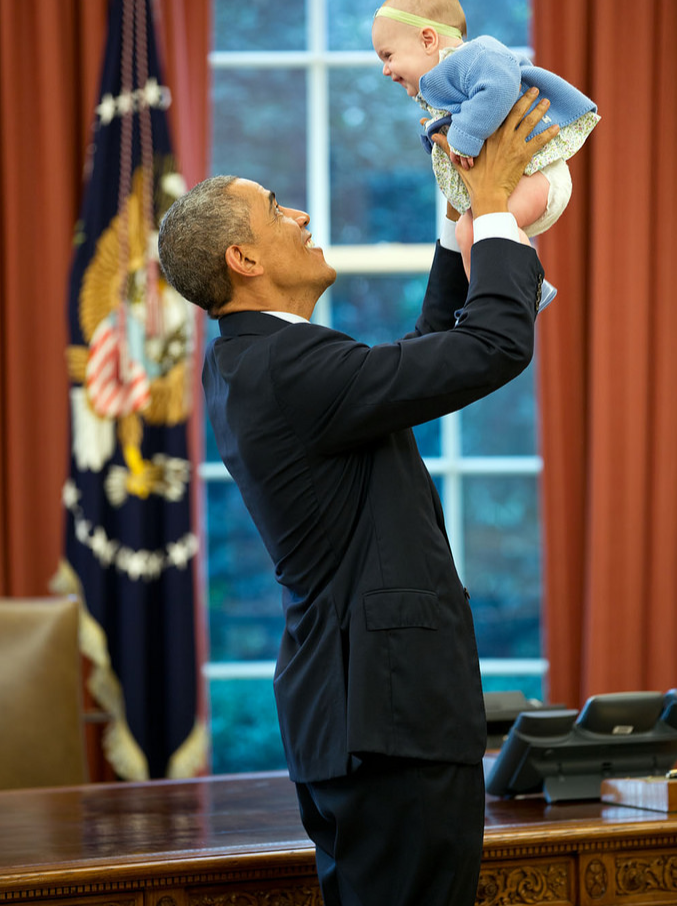
Earlier this month, I joined Senator Robert Casey, Congressman Joseph Crowley, Congresswoman Lois Frankel, and a coalition of House and Senate leaders as they announced legislation that would expand access to high-quality, affordable child care for America’s low-income and middle class families with children age three and under. By investing in our federal child care subsidy system, the Child C.A.R.E Act would help families to secure a safe and nurturing learning environment for their infant or toddler to contribute to their learning and development, while also helping parents to balance work and family demands. Ensuring that our youngest learners have access to high quality and affordable child care and early childhood education has been a long standing domestic priority of President Obama – in his State of the Union address last year, the President outlined his own plan to make affordable, quality child care available to every working and middle-class family with young children.

Securing high-quality and affordable child care is a challenge that millions of Americans face each day. Child care is one of the highest household expenses for families with young children – in 2013, the average cost of full-time care for an infant at a child care center was about $10,000 per year. In 31 states and the District of Columbia, quality child care is more expensive than tuition at a public university. Bearing this cost is a particular challenge for our nation’s neediest families. But child care is not only unaffordable to our lowest income families – in fact, it is a significant cost burden for middle class families, as well.
This difficulty accessing high quality child care not only affects parents’ ability to work and support their families; it also affects our youngest learners, because we know what a difference high quality learning environments can make for the long-term success and well-being of our children. The first five years of a child’s life sets the foundation for their health, cognitive and social-emotional development. During these years, children’s brains develop at a pace more rapid than any other in the life span. About 700 new neural connections are formed every second in a child’s brain – the brain reaches 80 percent of its adult size by the time a child is three, and 90 precent by the time a child is five. Research indicates that access to high quality early education – including quality child care – can result in increased school readiness and success, higher earnings, improved health, and even decreased involvement with the criminal justice system. The President’s Council on Economic Advisers has estimated that expanding early learning initiatives would provide benefits to society of roughly $8.60 for every $1 spent.
The C.A.R.E Act would provide the resources needed to expand access to child care assistance through the federal Child Care and Development Fund (CCDF), which presently assists about 1.4 million children per month to offset the high cost of child care, while increasing the availability and quality of that care. States contribute matching resources for a portion of the CCDF funding they receive. But currently, federal and state funding for child care assistance through CCDF falls far short of the need, and only a small share of young children receive federal child care subsidies. The C.A.R.E. Act would remedy that by ensuring that all low- and moderate-income families (those earning roughly less than $40,000 for a family of three) have access to a child care subsidy for their young child, so that they can pursue work, school or job training to provide for their family. Over time, the C.A.R.E. Act will help an additional 1.1 million young children and their families, enabling our nation to assist more than 2.6 million children each month through our federal child care subsidy system.
We know the benefits of child care and early learning are realized when children have access to rich learning environments that truly reflect a high standard of quality, as well as the benefit of a well-prepared and knowledgeable early education workforce. There are over 2 million adults working in child care programs today, earning a median wage of $19,344 annually – barely enough to get by and provide for their own families. We must do better to invest in those entrusted with one of our nation’s most precious resources – our children.
The Child C.A.R.E. Act puts us on a trajectory to ensure that children have access to high-quality, affordable early child care to prepare for school and for life. We are thankful for the leadership of Senator Casey, Congressman Crowley and the coalition of Senators and Members of Congress who have joined them in co-sponsoring this legislation. Supporting the positive development, learning and well-being of our youngest children is one of the most important investments that we can make in our future.


